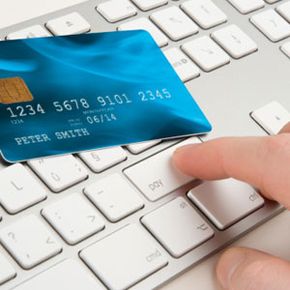When it comes to spending money, people have pretty specific comfort zones. You might be a cash person, preferring anonymity to convenience. Maybe you're an all-credit type who hasn't carried cash in years. Or you might be devoted to your debit card -- you have the ease of plastic but without the crazy interest rates and the temptation to spend funds you don't have. If debit is dear to you, you're not alone: As of September 2010, there were approximately 520 million Visa and MasterCard debit cards in circulation, and by the end of that year, those cards had generated more than $1.3 trillion in purchases [source: Woolsey and Schulz]. To say debit cards are popular is an understatement.
Most financial experts agree that there's no single best payment method; it's just a matter of personal preference. But what should you use when it comes to online shopping? If you're a debit card person, should you stay in your comfort zone when you're shopping online?
Advertisement
As much as you might resist it, debit cards should not be used to pay for online transactions; a credit card is always safer for e-commerce. You're not as protected against fraud when you use a debit card, and disputes with those cards can be difficult to resolve. Plus, if someone steals your debit card number, your entire bank account is vulnerable.
Credit card users are protected by the Truth in Lending Act, which says you're not liable for any debts if you report that your card has been lost or stolen before unauthorized transactions are made. Additionally, there's a $50 limit on liability, even after your missing card has been used [source: Block].
The Electronic Fund Transfer Act, which regulates debit card use, is a bit more convoluted. You could be liable for only $50 -- if you notify your financial institution within two days of realizing that your card has been lost or stolen. If you speak up later than that but within 60 days of the date your statement was mailed (review your monthly financial statements to identify any unauthorized transactions), you could be on the hook for up to $500. Wait longer, and you could be responsible for every transaction -- and quite possibly lose every cent in your bank account [source: Block].
Most banks do offer zero-liability debit cards, so you probably wouldn't be completely emptied out if an online debit transaction goes awry. But if you do have to enter into a dispute, you'd be pretty much on your own (unlike in a credit card dispute, when the card issuer goes to bat for you). It's your money on the line, and you could have some serious cash flow problems while the issue is being resolved.
No matter how you pay for your online shopping, the next page has tips to keep your personal and financial information and protected.
Advertisement



